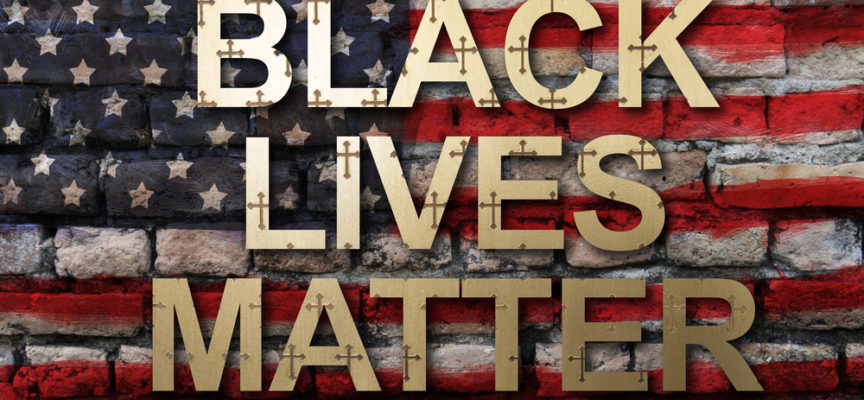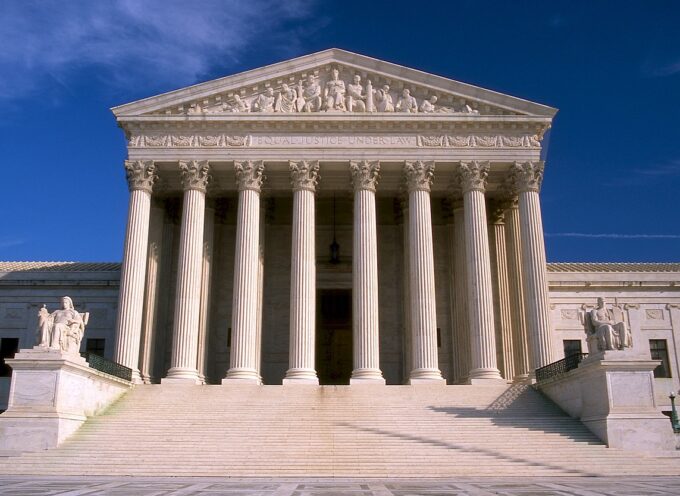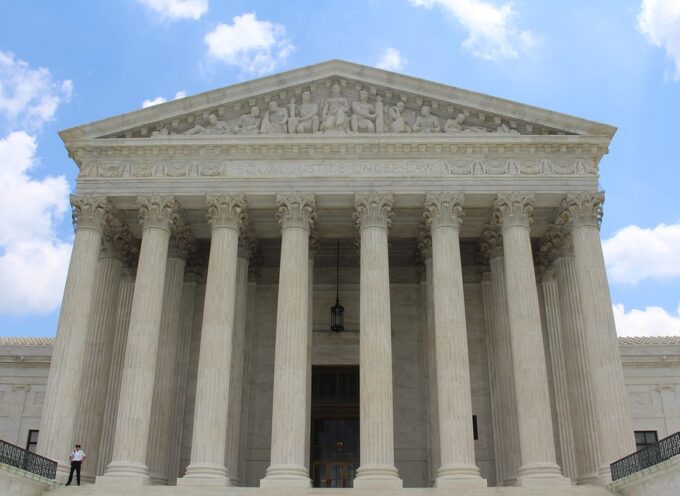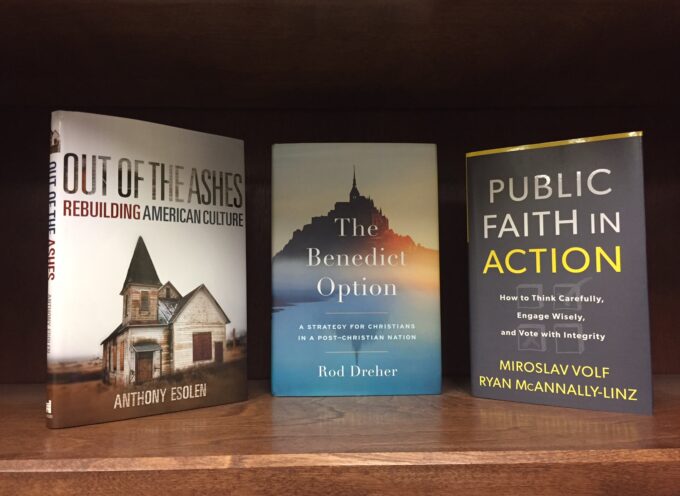The emergence of BLM provides a reminder for God’s people to reflect upon our nation’s historic race-related sins and injustices. After all, black lives do matter. And to our shame black individuals and communities often have been treated unjustly, unequally, and without the dignity and respect they deserve. However, as with the emergence of any social, cultural, or political movement, we should be careful not to “ride waves” without understanding the tides that caused them.
For these reasons, this series of blogposts has provided a brief history of BLM, a concise summary of BLM ideology, a portrait of six BLM leaders, and brief answers to five frequently-asked questions. Now, finally, it will provide a brief evangelical evaluation of BLM in terms of it’s near-term strategy, long-term strategy, and tactical approach.
Near-Term Strategy (Achieve Justice for the Black Community)
In terms of its near-term strategy of seeking justice and equality for the black community, evangelical Christians should agree: black lives matter. This point is so obvious that it shouldn’t need to be stated. But it does need to be stated and not only stated, but declared, defended, and acted upon. If we wish to be faithful witnesses in relation to America’s issues with racial justice and racial unity, we need a firm grasp of the Bible’s teaching and wisdom in how to apply that teaching to our political moment. The Bible’s teaching crystallizes in four plot movements:
- Creation: God created the world as a dazzlingly beautiful unity-in-diversity (Genesis 1). He created different kinds of vegetation, different kinds of animals, and even different types of people. The Bible makes clear that every human being—no matter their gender or ethnic background—is created in the image and likeness of God (Gen 1:27-28). At the time of creation, humans flourished because we were rightly related to God, to each other, and to the created order; there was no spiritual, moral, or racial disunity. This fact alone should cause a Christian to work hard to repent of his personal prejudices and to reshape any cultural institutions that put persons of color at a disadvantage.
- Fall: Sadly, the first couple—Adam and Eve—sinned against God (Gen 3). Once sin entered the world, it spread to all people and embedded itself into social and cultural institutions (Gen 4-11). Racism, like any other sin, embeds itself into a society’s cultural institutions—families, churches, schools, and government organizations. So, it is not enough for Christians to encourage individual persons to repent of their prejudices; we must also reshape any cultural institutions that foster racial disunity or injustice. But neither is it enough to seek political and institutional remedies; we must eradicate the persistent sin that festers individually in our hearts.
- Redemption: The good news is that God responded to the first couple’s sin by promising that he would send a Savior, and he remained true to his word. He sent his Son Jesus in a brown Middle Eastern Jewish body to redeem us from our sins and restore our unity with God and with each other. That is why the apostle Paul wrote, “You are all sons of God through faith in Christ Jesus…. There is neither Jew nor Greek, slave nor free, male nor female, for you are all one in Christ Jesus” (Galatians 3:26, 28). In other words, God commissions his Son to reestablish the relationship human beings have with him and with each other.
- Restoration: The Bible promises that Jesus will return one day to renew and restore the earth, and to heal and reconcile his people. In fact, the book of Revelation emphasizes the fact that in the future, all tribes, tongues, peoples and nations will gather before God as a unified diversity (Revelation 5:9). Once again, humanity will be rightly related to God, to each other, and to the created order; there will be no spiritual, moral, or racial disunity. This fact should encourage us to work for racial justice and unity in our homes, our churches, our neighborhoods, and our nation at large; to the extent that we are able to achieve justice and unity, we will give the world a glimpse of Christ’s future kingdom.
So yes, let’s say it loud and clear: black lives matter.
Long-Term Strategy (A Comprehensive Social Revolution)
Because BLM is rooted in the soil of secular ideology, Christians will find themselves disagreeing with aspects of BLM’s vision for a comprehensive social revolution. Indeed, we must resist their conscious attempts to overthrow the Judeo-Christian theological and moral foundations upon which our society has rested historically. We must persuade our neighbors that the biblical view of gender and sexuality is best for individuals and best for society. We must oppose BLM’s attempts to disrupt the nuclear family and decrease its significance. “Christians,” Anthony Bradley writes, “need not employ any number of creative hermeneutics to attempt to theologically justify [BLM], make it consistent with Christianity, or explain their proximity to it.”
BLM is right to seek economic justice, but, its approach is deeply flawed. As Jason Riley notes, BLM doesn’t sufficiently consider the reasons for the injustice they wish to address, and further, they fail to make proposals that will actually improve the situation. Raising awareness can only go so far. Instead of relying on greater expansion of welfare systems, for instance, BLM activists should focus their efforts on what should be the role of the private sector, namely seeking to bring jobs into poor neighborhoods and developing ways to support schools and education efforts.
Tactical Approach (Nonviolent Protests)
BLM leadership rejects social passivity, on the one hand, and violent militancy, on the other hand, in favor of non-violent direct action. When BLM identifies a real or perceived injustice, it dramatizes that injustice. Just as the CRM staged non-violent protests to expose the daily injustices experienced by blacks in the South, so BLM stages non-violent protests to expose injustices experienced by blacks in cities across the nation. Christians should support the non-violent approach.
Although BLM and the CRM are similar in their preference for non-violent direct action, they differ in terms of their organizing cases. Whereas the CRM highlighted “perfect victim” cases which could tip social climates in the favor of their movement (think Rosa Parks, a vulnerable female, refusing to give up her seat on a bus), BLM organizes around cases that are not as clearly defined (think videos of black males being shot by white police officers, in instances in which broader context is not given and the viewer cannot determine the guilt or innocence of the black male or white officer). For this reason, Christians will often find themselves reserving judgment in BLM’s organizing cases in a way that we did not reserve judgment in CRM’s organizing cases.
On the other hand, the law should oppose those BLM activists who pursue vigilante justice and use violence to make their point. It should oppose them on the basis of our Constitution, which makes clear that legislative, executive, and judicial officials alone have the authority to make laws, enforce laws, and punish offenders. It should oppose them with the knowledge that God has given to government alone the right to uphold law and order through the use of physical force (Rom 13:1-7). For that reason, BLM activists should call for honest and law-abiding police officers—rather than mobs or vigilantes—to hold uphold justice by holding racist police officers accountable.
Tactical Approach (Focus on Law Enforcement)
BLM has focused its protests on instances in which black males have been killed by white police officers. In those instances, the black male appears to have been shot unjustly by the white police officer, although the viewer does not know the broader context and, therefore, cannot determine the guilt or innocence of the black male or the white police officer. In instances such as these, how should Christians respond? In a nutshell, we should weep with those who weep, refuse to play judge and jury, and push for institutional reform as needed.
First, weep with those who weep. Many black Americans are not only frustrated and angry but also afraid. They are afraid that “justice and equality for all” doesn’t apply to their sons. They are afraid to let their sons go outside at night for fear that a routine traffic stop could spell the end of their life. Pastor Mika Edmonson writes:
My wife has to beg me (a grown 37-year-old-man) not to go out to Walmart at night, not because she’s afraid of the criminal element, but because she’s afraid of the police element…. She knows that when the police see me, they aren’t going to see Mika Edmonson, pastor of New City Fellowship Presbyterian Church. When they see me, they aren’t going to see Mika Edmonson, PHD in systematic theology. When they see me, all they’re going to see is a black man out late at night. And she knows we’re getting stopped at 10-times the rate of everybody else, arrested at 26-times the rate of everybody else, and killed at 5-times the rate of everybody else. BLM can see the injustice in those statistics. How can BLM see the value of black life better than we [Christians] can? Why does BLM care more about the value of my life than you [white Christians] do?
Evangelical Christians should be the first to weep with those who weep. We don’t have to act as the judge or jury of any particular police officer, or of police officers in general, in order to sympathize and show genuine Christian love to black friends and neighbors who are grieving, angry, or afraid. When we weep with those who weep, we tend to open up as human beings. We see things in a way we didn’t see them before. We have the opportunity to correct our misperceptions. This sort of humility is in very short supply in America’s polarized and toxic public square, and it would be an ugly irony if we followers of Jesus (Jesus, who humbled himself for our sake) are not able to muster some openness and humility.
Second, refuse to play judge and jury. BLM makes a good point that no police officer should play judge and jury on the street. Similarly, we should make the point that no American citizen should play judge and jury in front of a television set. Just as police officers shouldn’t kill a black man unjustly on the street, we shouldn’t condemn a police officer without knowing the context or letting him stand trial.
Third, push for institutional reform as needed. As I stated earlier, the Bible makes clear that all sin, including racism, is manifested at the individual and cultural levels—and that its roots go much deeper than we initially realize (Gen 3-11). It is not enough to encourage individual persons to repent of their prejudices; we must also reshape any cultural institutions that foster racial disunity or injustice. But neither is it enough to seek political and institutional remedies; we must eradicate the persistent sin that festers individually in our hearts.
Conclusion
The emergence of BLM provides evangelical Christians a unique opportunity: to critically engage and address the ethical issues and concerns raised by BLM. While we disagree with BLM’s long-term strategy for a comprehensive secular progressive social revolution, and while we must reserve judgment of their organizing cases, we are not, therefore, free to ignore the issues and concerns BLM raises.
I write as a white evangelical Christian, and we—white evangelical Christians—must be especially vigilant to find “a more excellent” way to overcome racism wherever it exists and to foster racial reconciliation and unity. We must acknowledge that individuals commit racist sins, but also that a society’s sins coalesce to corrupt and misdirect that society’s cultural institutions, which in turn (mis)shapes the individuals of that society.
There are many ways in which white Evangelicals admirably represent Christ and his gospel. I am convinced, however, that overcoming racism is not yet one of the ways that we represent him consistently and admirably. Let us pray that the King of the nations will help us to repent of our sins, repair our ignorance, and carve out a path of gospel faithfulness for the sake of our souls, for the love of our black brothers and sisters, for the health of the church, and for our witness to the world.
[Note: The current post is the sixth installment in a six-part series on the #BlackLivesMatter movement, including a brief history of BLM, a summary of BLM ideology, a portrait of BLM leaders, a response to FAQs about BLM, and an evangelical evaluation of BLM.]
Subscribe
Never miss a post! Have all new posts delivered straight to your inbox.








I have been looking for this article since the BLM demonstrations started. Thank you for this succinct, biblical view on the issue.
A follow up question if I may. How do we white evangelical christians “find “a more excellent” way to overcome racism wherever it exists and to foster racial reconciliation and unity”? What action can we take?
Like you said, bringing awareness only goes so far. Is there legislation we can lobby for or church programs we can implement?
Thank you.